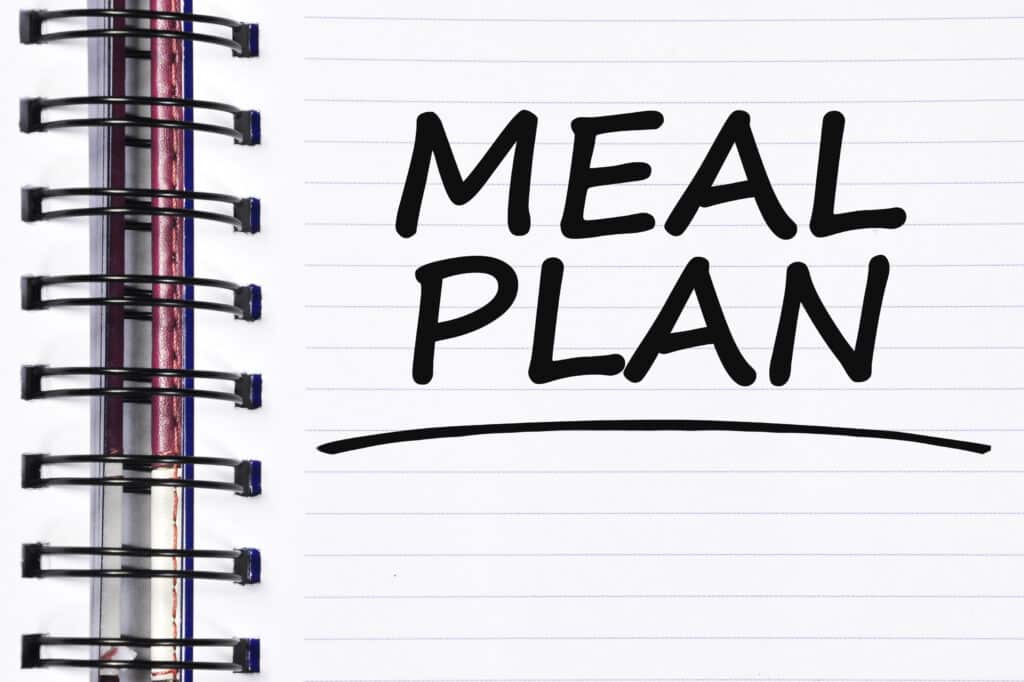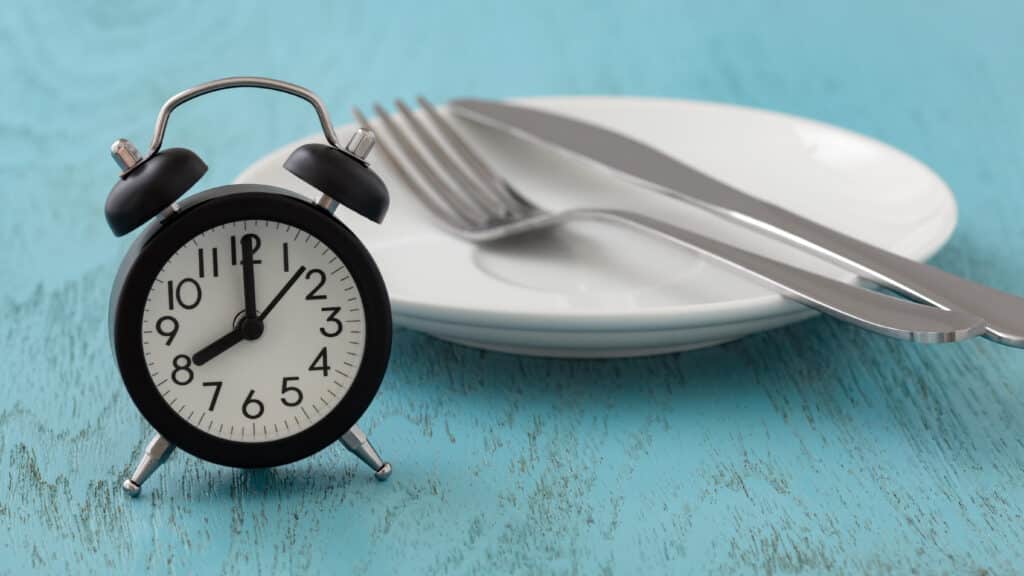
Create a meal plan tailored to your goals involves several steps, from identifying your objectives to organizing your meals for convenience and nutrition. Future Fitness Training provides the tools and tips to help you craft a meal plan that supports your lifestyle and wellness journey. Read more here.
The way you eat is one of the most important and toughest choices you make every day. If you’re like most people, you have a lot on your plate — a job, kids, a social life, a home to take care of, and a crush on your co-worker. And let’s not forget about the to-do list that’s constantly piling up on your desk. Between work and play, it’s hard to find the time to cook a healthy, balanced meal. Eating healthier isn’t as easy as it sounds, especially if you’re eating right five days a week and bingeing on the weekend. That’s why more people are turning to meal plans they buy from the grocery store or their favorite restaurant.
A meal plan is a common term that most people will have heard of. While this is true, many won’t be able to tell you what it is. A meal plan is a plan that outlines your meals for a certain period. Typically this period is for a week, but it can also be for a month or even a year. This blog will run through some of the common meal plan approaches and give you a simple guide to starting your successful meal plan.
Get a free 28-day meal plan here.

you can create a meal plan to achieve a goal (lose weight, gain muscle, fuel your workouts, etc.) or to save time and money and improve your health. While meal plans have been around for a long time, they are still largely misunderstood. It’s easy to assume that a meal plan is just a diet plan, but that’s not the case. A diet plan is restrictive and includes information about what you can or can’t eat. A meal plan, on the other hand, contains all of your meals and snacks for a specific period (usually a week or a day). It is not a diet but rather a practical strategy to eat the types of foods you want to eat while still being able to achieve your specific goals.
Schedule a free 30-minute consultation to learn more about how to build a meal plan.
| Thank you for Signing Up |


The different ways people plan their meals

Meal planning – it’s a buzzword that gets thrown around a lot these days. And with the growing popularity of “meal prepping”, it’s a term you’re sure to hear more often. So how do you go about meal planning? People do it in two main ways: meal planning with a specific diet plan in mind and meal planning with a goal in mind. Understanding the different approaches to meal planning can be the difference between getting results or giving up. A meal plan is only as good as the person who uses it. Meal planning can be overwhelming for some people, especially if they are trying to lose weight. Let’s go over the two main approaches to meal planning:
Meal planning with a specific diet plan
It is possible to create a meal plan that works for your needs. Meal planning can be a huge chore, especially when you are targeting a specific diet. When you plan your meals, you make sure that every meal has the right amount of calories, vitamins, and nutrients you need. When you are trying to eliminate gluten or carbs or trying to get more greens in your diet, it is important to know what kinds of foods to add to your diet to ensure you are getting the nutrients and vitamins you need.
Meal planning with a goal in mind
The first thing you’ll want to do is decide on your goals. Meal planning with a goal in mind is one of the best ways to keep you on track with your diet. This is one of the most effective methods for eating healthy and keeping you from going off track. You need to look at your diet and decide what you want to achieve. How much weight do you want to lose or gain? Is it going to be to see your abs? What is your budget? Do you have specific dietary restrictions? Once you have a goal, you can start to figure out what works best for you and begin to set up a meal plan that has realistic and attainable goals.
Do you have questions? Contact us for answers.
| Thank you for Signing Up |


The keys to successful meal plans

People create meal plans for many different reasons. Maybe they’re working to lose weight, maybe they have someone to cook for, or they could just be trying to save money. Whatever your reason, there’s one thing we can all agree on, making a meal plan is easier said than done. It takes a lot of time and maintenance. Sure, they know they should eat healthily, but they don’t know how to create a meal plan that will help them achieve their goals while still allowing them to enjoy their life. And even if you do know how to create a meal plan, it’s not always easy to stay with it. After all, creating a meal plan is only half the battle. The other half is sticking with it.
Planning your meals out for the week is not just about creating a grocery list. It’s about creating a lifestyle. You can make all the plans in the world, but you still have to stick to them. If you don’t include the right foods, you might not lose weight because you’re not eating the right things. You can plan your meals based on the meal plan you can find in the cookbook, or you can create your meal plan. The best time to plan your meals is when you are relaxed and have time to think. You will find it easier to think of new recipes and new ways to make familiar recipes. Meal planning is about goal setting and intention. It can be a great tool for success, but it takes time, effort, and commitment to make it work for you.
| Thank you for Signing Up |


How to compose your healthiest meal plan?
Most people have no trouble deciding to start a diet. The decision to stick to that diet is the tough part. At times, the logic behind dieting can even feel backward. For example, if you decide to eat more meat, you’ll probably eat fewer carbs. The thinking is that meat is high in protein, which fills you up more than carbs, which are often considered empty calories. It’s harder to lose weight when you’re hungry, so you’re less likely to eat when you’re not truly hungry. Now, when it comes to composing your healthiest meal plan and if you are looking for results, consider one of these three things: (1) calorie counting, (2) portion control, and (3) meal timing.
Calorie Counting

Calorie counting is a weight loss method that is based on monitoring caloric intake. It is not a “diet,” but rather a lifestyle change to lose weight. Most people know that they should be eating fewer calories than they are spending in activity, but they don’t know how many calories they should be eating. Calorie counting is the most accurate way to figure out the number of calories you should be eating daily to lose weight.
Portion Control
Portion size is a very important factor to consider when you set out to diet. It is one of the most important factors because it has a tremendous impact on the results you get. The first thing to realize is that the size of the portions will vary according to the size of your body. If you have been working out for a while and have a muscular body, you will need to eat much less than the person who is physically inactive and has a soft body. So you need to start by setting your goals and determining what you need to achieve them.
Meal Timing
Are you one of those people who find themselves wondering why you’re constantly hungry? Ever thought about why you can’t lose weight, despite being on a calorie-restricted diet? Time of the day is one of the most crucial factors when it comes to losing weight and building muscle. You could eat the same amount of calories or take the same supplements, but if you eat them at different times of day, you’ll see a difference in your health and fitness goals. To make the most of your meals, you need to understand your body’s circadian rhythm or the 24-hour cycle of your body’s processes. Your circadian rhythm is directly related to your hormones, which are largely responsible for your body’s functions, including digestion and fat burning.
When it comes to meal timing, the science is pretty clear: the so-called “grazing” approach to eating may be the worst way to feed the body and can contribute to weight gain, diabetes, and other health problems. The kind of approach that seems to work best for weight loss is to eat three meals and two snacks a day – this is a “trickle-down” approach, which means that all the calories are spread out evenly across the day. Of course, there are several ways to spread out calories throughout the day, and there’s no one-size-fits-all solution. The approach to meal timing is one of the most effective, and it will leave you feeling energized, light, and free of the afternoon drowsiness that can come with a heavy meal.
Meal plans are the foundation on which you build your healthy lifestyle. Make sure it is built to last. While it may seem difficult at first, many people feel that it is worth it in the long run. Meal planning can be a great way to keep your diet on track, save money, and reduce your grocery bill. It can also be a great way to make sure you’re eating the right foods and getting the right amount of nutrients throughout the day.
When it comes to created meal planning, you’ll want to make sure you’re doing it right. The last thing you want is to gain more weight because you’re not getting the proper nutrients. If you have any questions about creating a meal plan that works for you, please feel free to contact us.
| Thank you for Signing Up |






